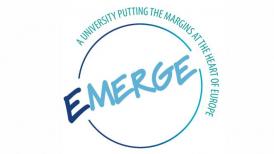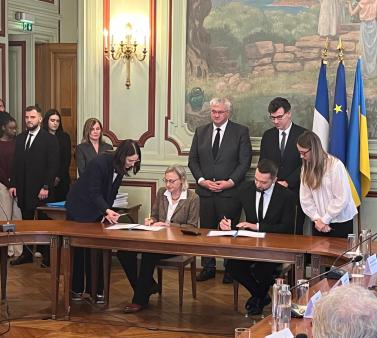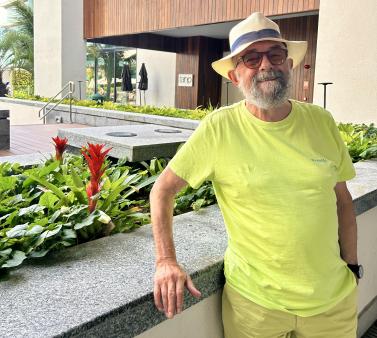
Building on the work undertaken together in recent years, the consortium of 9 higher education institutions from the periphery of Europe submitted its application to the European Commission for the EUI 2023 program at the end of January, 2023. This latest step follows a high-level meeting in December during which Rennes 2 University President, Christine Rivalan Guégo, and the management teams of each institution reaffirmed their common mission and vision and developed the final elements of their new application.
Currently coordinated by the University of Limerick, the consortium began working together in 2019, under the coordination of Rennes 2 University, to submit a first application to the 2020 EUI call. Since then, the consortium has been consistently cooperating on projects with the shared desire to tackle the particular challenges of engaging with Europe and extending the European Educational Area to better include and represent the marginal spaces where EMERGE institutions are located. While the partners each have varying cultures, languages and educational programs, they aim to build a new long-term joint strategy with a bottom-up approach which will impact and support all of areas of higher education activities, from teaching and learning, to research and innovation, whilst encouraging new forms of student and staff mobility to the benefit of each community as well as local stakeholders.
As part of this continuing collaboration, the group has already been able to create and implement a number of specific projects, including two Erasmus + projects: TELME (an Erasmus Mundus Master’s program for teaching in a multilingual environment) and TRIP (Training and innovations in Internationalisation at Home Pedagogies). In addition to these, the partners are also building virtual exchange programs together, an EMERGE Student Forum, combined Staff Weeks and more. “We’re delighted to have put in place this vibrant group of 9 universities whose members stretch from Norway to Cyprus, and from Greece through Ireland, and who are working together closely to provide new opportunities for our students and staff”, said Lesley Lelourec, Vice President of Internationalisation at Rennes 2.
Upcoming Events in the Spring of 2023
The EMERGE partners are already planning two major events as part of their ongoing collaboration. The first will be a Staff Week to be held in April and hosted by the University of Neapolis, Pafos, Cyprus. A second Staff Week will take place a month later in Flensburg, Germany, from May 15-17, 2023, and will be hosted by the Language Center of Europa-Universität Flensburg. This three-day event is especially designed for staff of university language centers or for those who work in a field related to language teaching, services or support, for example: language-teaching, coaching, mentoring, translation, editing, consulting or policy development.
In addition to Rennes 2 University, EMERGE partners include:
- University of Limerick, (UL) Ireland,
-
Neapolis University Pafos, (NUP), Cyprus,
-
Université Bretagne Sud (UBS), France,
-
Europa-Universität Flensburg (EUF), Germany,
-
Inland Norway University of Applied Sciences (INN Universiy) / Høgskolen i Innlandet (HINN), Norway,
-
Univerzita Mateja Bela v Banskej Bystrici (UMB), Slovakia
-
Universidade da Coruña, Spain
-
Democritus University of Thrace (DUTH), Greece
More information on EMERGE
See the consortium’s website here.
See a video on the consortium here.
More details on the European Universities Initiative
The EUI currently supports 44 alliances gathering 340 higher education institutions from all over Europe. This new call is aiming to bring the initiative closer to the objective set in the European strategy for universities, to support 60 alliances by mid-2024, gathering over 500 higher education institutions across Europe. It will continue the rollout of the European Universities Initiative with a record total budget of €384 million.
The European Universities’ work encompasses all higher education institutions’ missions of education, research, innovation and service to society. These alliances have diverse models of systemic, structural and sustainable transnational cooperation which reinforce the quality, performance, attractiveness and international competitiveness of higher education across Europe, for the benefit of their students and staff, while promoting our democratic values.




